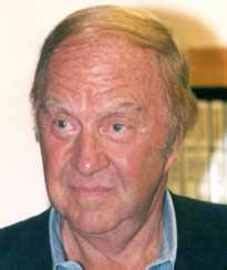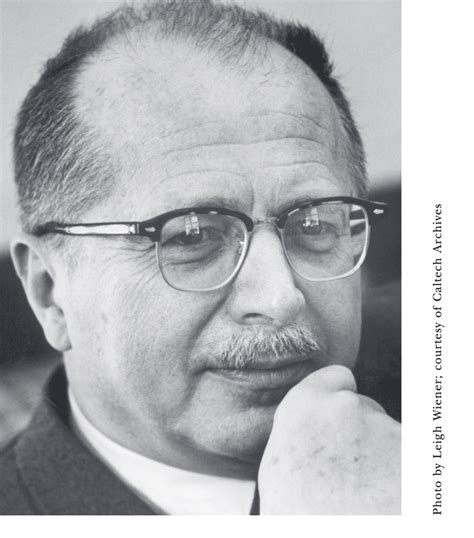Top 197 Hydrogen Quotes & Sayings - Page 4
Explore popular Hydrogen quotes.
Last updated on April 21, 2025.
While greenies and their media flunkies continue to savage the gasoline-powered internal-combustion engine and rhapsodize about hybrids, hydrogen, electrics, natural gas, propane, nuclear, and God-knows-what-other panaceas, perhaps including bovine urine, there are no realistic, economically viable alternatives. None. Zero. Like it or not, as long as we remain dependent on the private automobile for transportation (roughly 80 percent of all movement in the nation is by car), we are harnessed to the IC gas engine.
You put together two people who have not been put together before. Sometimes it is like that first attempt to harness a hydrogen balloon to a fire balloon: do you prefer crash and burn, or burn and crash? But sometimes it works, and something new is made, and the world is changed. Then, at some point, sooner or later, for this reason or that, one of them is taken away. and what is taken away is greater than the sum of what was there. this may not be mathematically possible; but it is emotionally possible.
In the heavens we discover [stars] by their light, and by their light alone ... the sole evidence of the existence of these distant worlds ... that each of them is built up of molecules of the same kinds we find on earth. A molecule of hydrogen, for example, whether in Sirius or in Arcturus, executes its vibrations in precisely the same time. Each molecule therefore throughout the universe bears impressed upon it the stamp of a metric system as distinctly as does the metre of the Archives at Paris, or the royal cubit of the Temple of Karnac.
Love has been taken away from the poets, and has been brought within the domain of true science. It may prove to be one of the great cosmic elementary forces. When the atom of hydrogen draws the atom of chlorine towards it to form the perfected molecule of hydrochloric acid, the force which it exerts may be intrinsically similar to that which draws me to you. Attraction and repulsion appear to be the primary forces. This is attraction.
Probably no single event highlights the strength of Campbell's argument (on peak oil) better than the rapid development of the Alberta tar sands. Bitumen, the world's ugliest and most expensive hydrocarbon, can never be a reasonable substitute for light oil due to its extreme capital, energy, and carbon intensity. Bitumen looks, smells, and behaves like asphalt; running an economy on it is akin to digging up our existing road infrastructure, melting it down, and enriching the goop with hydrogen until it becomes a sulfur-rich but marketable oil.
All the green in the planted world consists of these whole, rounded chloroplasts wending their ways in water. If you analyze a molecule of chlorophyll itself, what you get is one hundred thirty-six atoms of hydrogen, carbon, oxygen, and nitrogen arranged in an exact and complex relationship around a central ring. At the ring's center is a single atom of magnesium. Now: If you remove the atom of magnesium and in its exact place put an atom of iron, you get a molecule of hemoglobin. The iron atom combines with all the other atoms to make red blood, the streaming red dots in the goldfish's tail.
I may not be funny. I may not be a singer. I may not be a damn seamstress. I may have diabetes. I may have really bad vision. I may have one leg. I may not know how to read. I may not know who the vice president is. I may technically be an alien of the state. I may have a Zune. I may not know Excel. I may be two 9-year-olds in a trench coat. I may not have full control of my bowels. I may drive a '94 Honda Civic. I may not “get” cameras. I may dye my hair with Hydrogen Peroxide. I may be afraid of trees. I may be on fire right now. But I'm a fierce queen.
Water is two parts hydrogen and one part oxygen. What if someone says, “Well, that’s not how I choose to think about water.”? All we can do is appeal to scientific values. And if he doesn’t share those values, the conversation is over. If someone doesn’t value evidence, what evidence are you going to provide to prove they should value it? If someone doesn’t value logic, what logical argument could you provide to show the importance of logic?
One often feels as though something had happened before, I remember. It comes quite close to you and stands there and you know it was just this way once before, exactly so; for an instant you almost know how it must go on, but then it disappears as you try to lay hold of it like smoke or a dead memory. "We could never remember, Isabelle," I say. "It's like the rain. That has also become one, out of two gasses, oxygen and hydrogen, which no longer remember they were once gasses. Now they are only rain and have no memory of an earlier time.
Teller contended, not implausibly, that hydrogen bombs keep the peace, or at least prevent thermonuclear war, because the consequences of warfare between nuclear powers are now too dangerous. We haven't had a nuclear war yet, have we? But all such arguments assume that the nuclear-armed nations are and always will be, without exception, rational actors, and that bouts of anger and revenge and madness will never overtake their leaders (or military and secret police officers in charge of nuclear weapons). In the century of Hitler and Stalin, this seems ingenuous.
When carbon (C), Oxygen (o) and hydrogen (H) atoms bond in a certain way to form sugar, the resulting compound has a sweet taste. The sweetness resides neither in the C, nor in the O, nor in the H; it resides in the pattern that emerges from their interaction. It is an emergent property. Moreover, strictly speaking, is not a property of the chemical bonds. It is a sensory experience that arises when the sugar molecules interact with the chemistry of our taste buds, which in turns causes a set of neurons to fire in a certain way. The experience of sweetness emerges from that neural activity.
When the first mechanical clocks were invented, marking off time in crisp, regular intervals, it must have surprised people to discover that time flowed outside their own mental and physiological processes. Body time flows at its own variable rate, oblivious to the most precise hydrogen master clocks in the laboratory. In fact, the human body contains its own exquisite time-pieces, all with their separate rhythms. There are the alpha waves in the brain; another clock is the heart. And all the while tick the mysterious, ruthless clocks that regulate aging.
Science probes; it does not prove. Imagine Newton's reaction to an objector of his law of gravity who argued that he could not establish a universal law because he had not observed every falling apple, much less proved the law of gravity - there might, after all, be an apple that levitates! Why should a group of simple, stable compounds of carbon, hydrogen, oxygen and nitrogen struggle for billions of years to organize themselves into a professor of chemistry?
In a certain sense I made a living for five or six years out of that one star [? Sagittarii] and it is still a fascinating, not understood, star. It's the first star in which you could clearly demonstrate an enormous difference in chemical composition from the sun. It had almost no hydrogen. It was made largely of helium, and had much too much nitrogen and neon. It's still a mystery in many ways ... But it was the first star ever analysed that had a different composition, and I started that area of spectroscopy in the late thirties.
The scientist is not responsible for the laws of nature. It is his job to find out how these laws operate. It is the scientist's job to find the ways in which these laws can serve the human will. However, it is not the scientist's job to determine whether a hydrogen bomb should be constructed, whether it should be used, or how it should be used. This responsibility rests with the American people and with their chosen representatives.
If you think about the energy that a rocket engine has to put out and all the fuel and you're sitting on top of like a bomb. And on the Space Shuttle, that big orange tank is filled with liquid hydrogen and liquid oxygen, the white cell rocket boosters on the sides are filled with solid propellant. There's a lot of energy in all those chemicals there and you've got to control it in a way so it doesn't explode. So, there's a lot of plumbing, a lot of valving, a lot of control systems, and it's a very complicated thing. So, how do you bring the price of that down?
A hundred years ago, Auguste Compte, ... a great philosopher, said that humans will never be able to visit the stars, that we will never know what stars are made out of, that that's the one thing that science will never ever understand, because they're so far away. And then, just a few years later, scientists took starlight, ran it through a prism, looked at the rainbow coming from the starlight, and said: "Hydrogen!" Just a few years after this very rational, very reasonable, very scientific prediction was made, that we'll never know what stars are made of.
















